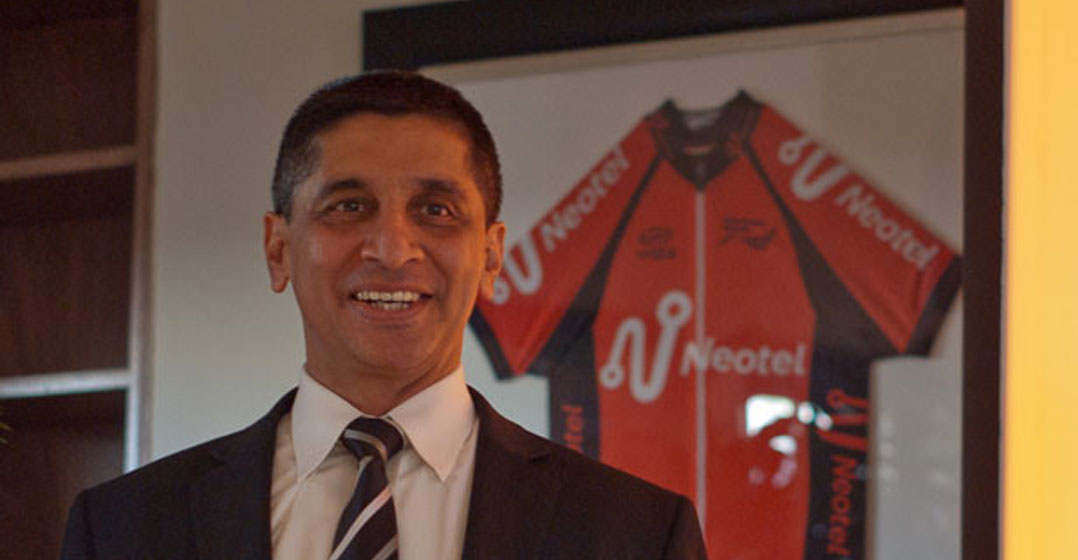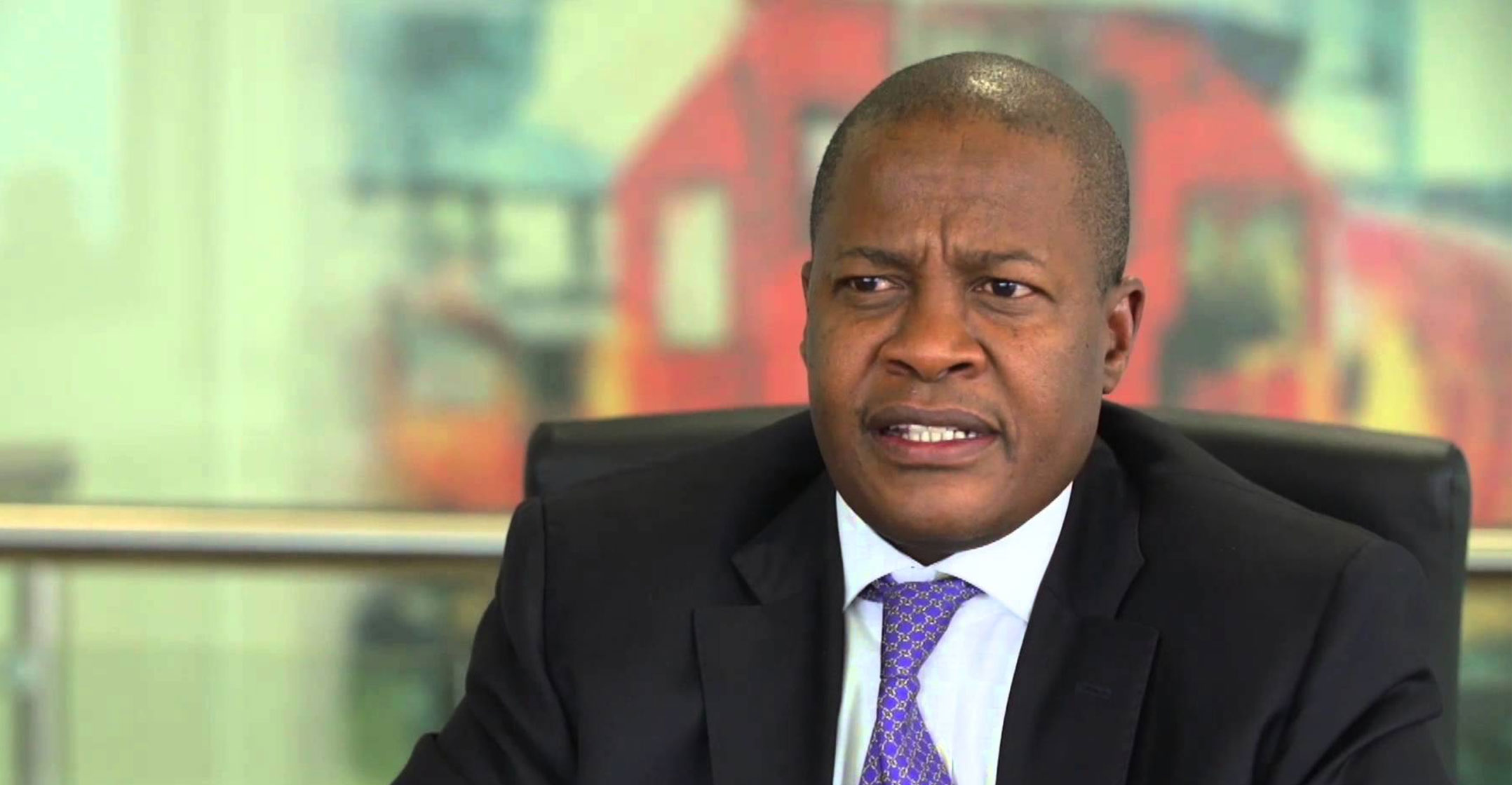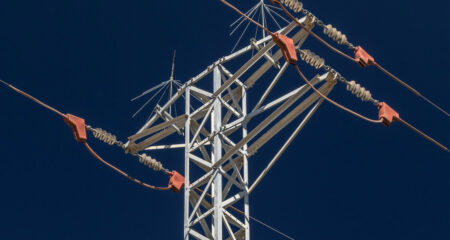 A bribes-for-contracts scandal involving Neotel and Transnet should be referred to law enforcement for further action, the state capture commission has recommended.
A bribes-for-contracts scandal involving Neotel and Transnet should be referred to law enforcement for further action, the state capture commission has recommended.
The commission, chaired by deputy chief justice Raymond Zondo, released the second part of its three-part report into state capture on Tuesday.
The latest document paints a damning picture of how former Transnet CEO Brian Molefe and former chief financial officer Anoj Singh pressured executives at the state-owned enterprise to direct billions of rand of spending towards Gupta family-linked enterprises.
The commission’s report also shows how Neotel — now Liquid Intelligent Technologies South Africa — allowed itself to get caught up in the widespread looting of state-owned enterprises that took place on former President Jacob Zuma’s watch.
The scandal at Neotel, which allegedly paid a Gupta front company called Homix millions of rand to secure lucrative deals at Transnet, ultimately led to the departure of CEO Sunil Joshi and chief financial officer Steven Whiley.
At the time, Molefe – who was later appointed by Zuma to lead Eskom – had been trying to engineer a deal for Gupta-linked T-Systems to take over the running of Transnet’s telecommunications systems, even though, of three short-listed bidders, Neotel’s proposition had easily scored highest while T-Systems’ bid had placed last.
“The award of the preferred bidder status to T-Systems by Mr Molefe made it necessary to plan for a transition of network services from Neotel to T-Systems,” the commission’s report said. “At the time, Neotel was still managing the ICT network and the relationship between it and Transnet had become strained.”
Suspicious payments
At least two suspicious payments were made to Homix by Neotel in 2014 and 2015, totalling R75.6-million. One related to a deal by Transnet to buy Cisco switches and routers from Neotel, and the other to a master service agreement (MSA) with Transnet. An amount of R34.53-million was paid on 3 April 2014 in relation to the Cisco deal, while R41.04-million was paid on 27 February 2015 in relation to the MSA deal. Both of these transactions appear to have had corrupt intent, the commission found it in its report.
The MSA deal with Homix, the commission said, was concluded by ex-Neotel CEO Joshi without board approval “and, in the opinion of the auditors, fell outside the scope of his authority”. The payments were approved by both Joshi and ex-CFO Whiley. “They explained to the auditors, Deloitte, that Homix had come on board on 12 December 2014 to assist with [a] supposed impasse in the 2014 MSA negotiations [between Neotel and Transnet] and was paid R41.04-million for one day’s work… Neither Mr Joshi nor Mr Whiley could offer much in the way of description or explanation of the work performed by Homix other than to say that it had resolved the impasse,” the commission’s report said.
It said Neotel appointed Werksmans Attorneys to conduct a further investigation. During this probe, on 19 May 2015 (a few weeks after being appointed as acting CEO of Transnet following Molefe’s exit to lead Eskom), Siyabonga Gama wrote a letter to the chairman of Neotel’s board, N Srinath, stating that Transnet was “comfortable and confident of the veracity of its procurement process” and that there had been no irregularity in the award of the MSA contract to Neotel. Gama said in the letter that it was normal practice for Transnet to engage business consultants or advisors “to navigate complex financial, technical and commercial aspects of transactions” and that Transnet was aware that Homix had played a similar role on behalf of Neotel.

“In saying this about Homix, Mr Gama exposed his dishonesty. Homix was a shell company, with which Neotel was engaged in fraudulent and corrupt activity to the detriment of Transnet. Yet Mr Gama essentially vouched for it,” the commission said.
On 9 June 2015, Deloitte advised Neotel that failure to report the transaction under the Prevention and Combating of Corrupt Practices Act could constitute a “reportable irregularity”. Neotel then reported the Homix transactions and laid the blame for any wrongdoing exclusively with former Transnet executive Gerhardus van der Westhuizen, alleging that his conduct constituted fraud. From April 2013 to December 2014, Van der Westhuizen was executive manager in the office of the CIO at Treansnet where he was responsible for ICT procurement across Transnet.
Deloitte reported a second reportable irregularity to the Independent Regulatory Board (IRBA) for Auditors on 14 July 2015 on the basis that Joshi and Whiley had breached the Companies Act and their common law duties as directors to act in the interests of the company, resulting in substantial financial losses to Neotel. On 8 February 2016, Deloitte reported additional irregularities to the IRBA, including that the directors of Neotel had failed to report the corrupt transactions to the Financial Intelligence Centre as required.
The Cisco deal
Other than the MSA contract, a deal to acquire Cisco equipment for Transnet has come into sharp focus in the report.
According to testimony to the commission by Van der Westhuizen, Transnet made a request to Singh (its former CFO) to procure equipment for the companies campuses from Cisco, via Neotel (which had an exclusive agreement), to a maximum value of R305-million. T-Systems, the report said, undertook to remove this cost from its “winning” network tender.
“Mr Singh approved the request on 21 February 2014 and Mr Van der Westhuizen immediately directed Francois van der Merwe, the executive at Neotel responsible for the Transnet account, to proceed with ordering the equipment from Cisco,” it said.
That very same day, Taufique Hasware Khan, the chief financial officer of Homix, sent an e-mail to Van der Merwe at Neotel, directing him to a letter, dated 6 January 2014, that it had allegedly faxed to Van der Merwe on 6 January. That letter, which was attached to the e-mail, stated the following:
Following our discussions, we are pleased to confirm that we are in a position to deliver on an opportunity at Transnet that we have been working on for some time.
The opportunity involves replacement of network equipment for a value of approximately R315-million excluding VAT. The full details of the opportunity will be disclosed to you after we have agreed on the conditions of the deal as listed below.
We are in a position to offer advisory services to Neotel for this opportunity and ensure that support from the current contract holder is obtained to facilitate a direct award of the contract from Transnet to Neotel.
In lieu of the services so provided to Neotel, and in consideration of the risk factor undertaken by us in the entire project, we would request a success fee be paid to us to the value of 10% of the contract, excluding VAT, payable to us within 14 days from the data of the award of the contract to Neotel.
Please advise if you are in agreement with our proposal. [If] in the affirmative, please advise if you wish to enter into a separate agreement pursuant to this letter to enable all stakeholders to have a level of comfort with respect to the deal.
The next day, Van der Merwe e-mailed Khan at Homix and said Neotel accepted the proposal on the condition a “detailed written agreement” was entered into.
Transnet’s Van der Westhuizen testified that he had not met anyone from Homix during the interaction with Neotel on the Cisco transaction. “It was unclear to him how Homix identified this ‘opportunity’ and was surprised that Homix knew about the approval of the transaction by Mr Singh on the very day of approval,” the commission’s report said.
“He doubted whether Homix could have added any value. The exclusivity arrangement obliged Transnet to procure network equipment from Neotel and thus Neotel would have had no need at all for any services from Homix. Moreover, if there had been a genuine need for Homix’s facilitation services on the Cisco transaction, it would have been brought to Mr Van der Westhuizen’s attention as he was the leader of the commercial team. This did not happen, which strongly intimates that no facilitation by Homix in fact took place. A fee of R30.3-million (excluding VAT) was nonetheless paid by Neotel to Homix in respect of its alleged rendering of services in the Cisco transaction.”

The commission report said that although there is no documentary evidence supporting this payment, evidence presented to the commission by the South African Reserve Bank showed that Homix was paid an amount of R75.5-million in 2015 by Neotel. This amount appears to be made up of the payment for the Cisco transaction and the payment in terms of the MSA agreement. “It is likely that the additional cost was passed onto Transnet,” it said.
“There are reasonable grounds to believe that Mr Khan at Homix, Mr Van der Merwe at Neotel, and perhaps others, committed the offence of corruption relating to procuring the tender of R305-million from Transnet as contemplated in section 13 of the Prevention and Combating of Corrupt Activities Act,” the commission said.
It added: “Mr Khan offered to accept a 10% commission, ultimately R30.3-million, from Neotel as an inducement (by influencing persons at Transnet) to award a tender for supplying the Cisco equipment. As Homix was an entity associated in fact with the Gupta enterprise, the planned participation and involvement in that corruption may be relied on to establish that Homix, Mr Khan, Mr Van der Merwe, Neotel and possibly some officials at Transnet, by virtue of their involvement with this transaction, were associated with and participated in the affairs of the Gupta racketeering enterprise through a pattern of racketeering activity…”
The likely offences, the commission said, should be referred for further investigation by South Africa’s law enforcement authorities. – © 2022 NewsCentral Media




